The 11 most mind-blowing, awe-inspiring health discoveries and innovations of 2020
Hilary Brueck

- In 2020, scientists learned a lot about the coronavirus, developing several impressive new vaccines.
- Striking innovations included a new treatment for peanut allergies, and a non-hormonal gel birth control.
- Here are 11 key health discoveries and innovations which blew our brains right off in 2020.
In 2020, scientists found new ways to vaccinate people, built disposable cameras that can travel inside the body, learned how the coronavirus can spread through the air, and approved a new kind of birth control that's more goopy than the rest.
Here are 11 of the most remarkable health discoveries of the year:
The most impressive 2020 health discovery of all may be that the world got its very first mRNA vaccines. And it looks like they work really, really well against the coronavirus.
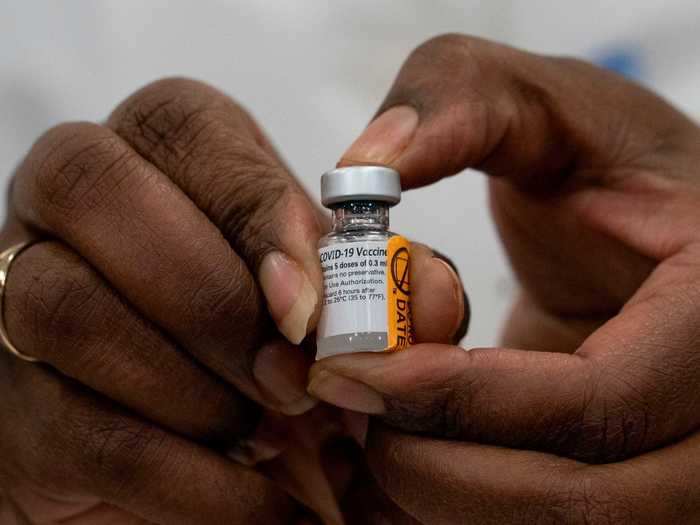
Both Pfizer and Moderna's new COVID-19 vaccines were found to be more than 94% effective at preventing symptomatic infections in clinical trials of tens of thousands of volunteers around the world. Each has been issued an Emergency Use Authorization by the Food and Drug Administration, kicking off what's set to be the largest vaccination campaign in US history.
But what's perhaps most remarkable about them is that they were each developed in just days, using groundbreaking messenger RNA (mRNA) vaccine technology.
Biochemist Katalin Karikó, who pioneered the new mRNA vaccine technique being used by both Pfizer and Moderna, told Business Insider's Aria Bendix that initially, "everybody rejected it."
But, she persevered anyway, spending decades refining the virus-fighting technique.
"When people are saying, 'There is no messenger RNA vaccine that's ever been,' it is very critical and very important to know that not because it failed," Karikó said. "It just didn't have time to be advanced by many people."
Cheap steroids, like dexamethasone, are surprisingly effective for treating very ill COVID-19 patients.
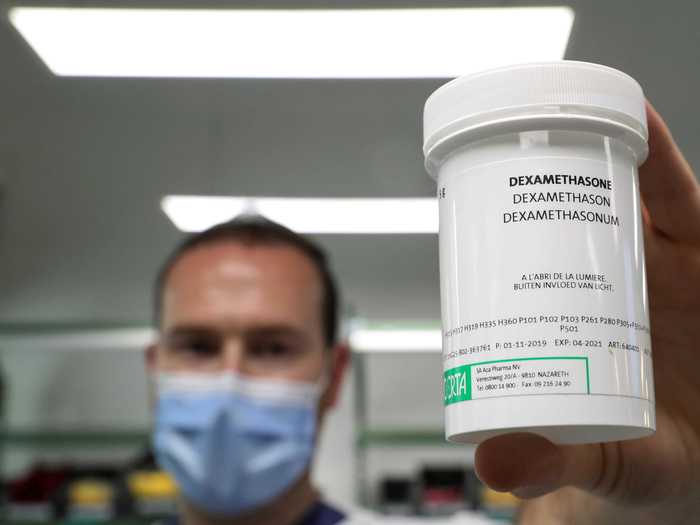
When the novel coronavirus emerged in late 2019, doctors around the world had no good way to treat it.
They tried plenty of medicine that was already on the shelf, including hydroxychloroquine, which turned out to be a dud.
First, there was the anti-inflammatory drug has worked for decades against malaria, rheumatoid arthritis, and lupus, which was promising. But, in trial after trial, scientists found that the drug did little for COVID-19 patients. Regulators at the FDA revoked hydroxychloroquine's emergency use authorization in June.
Similarly, the drug Remdesivir, which was originally developed to help Ebola sufferers, seems to be ineffective for COVID-19. The WHO said in November that "there is currently no evidence that it improves survival or the need for ventilation."
However, there was evidence that a cheaper steroid, dexamethasone, is a better alternative, reducing the risk of death for patients on ventilators by about one-third.
New monoclonal antibody treatments for the coronavirus do show promise, especially if they're taken early on.
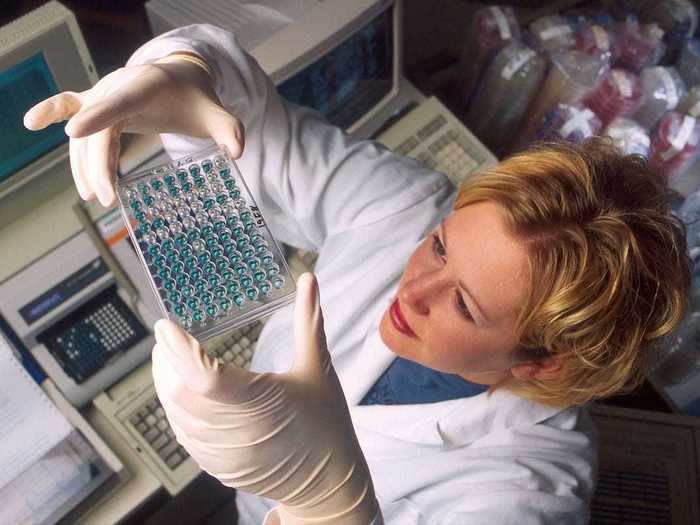
President Donald Trump received monoclonal antibodies when he got the coronavirus. Monoclonal antibodies are, essentially, synthetic versions of the natural antibodies that human immune systems use to fight off infections. They work best when they're administered early on in an illness.
But, they are still largely experimental, and in short supply.
In November, the FDA granted both Eli Lilly and Regeneron Emergency Use Authorizations for their monoclonal antibody treatments for COVID-19.
Despite some early hesitation, experts have embraced the idea that the coronavirus can indeed float through the air, under the right circumstances.

Early on in the pandemic, when scientists didn't fully understand how the coronavirus spreads best, people were washing their groceries and wiping down mail, worrying about its presence on surfaces.
Now, we know that was likely overkill, and that the respiratory virus transmits best from person to person, when people get together in the same space.
But there's also ample evidence that the coronavirus can be airborne, under the right circumstances. This means six feet of separation isn't always enough to protect you from someone else's virus, sitting across the room. It's why bars and house parties can be so dangerous during the pandemic, and why being outdoors, where there is near-infinite ventilation, really helps.
The pandemic has also highlighted the importance of getting enough vitamin D.
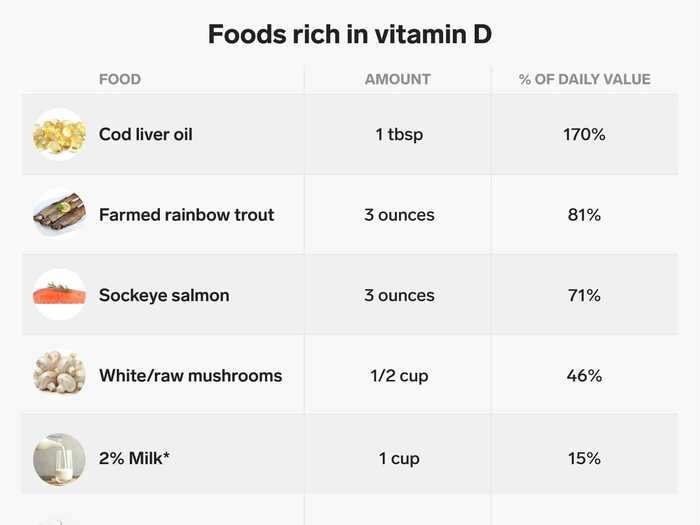
Scientists have known for quite a while that this nutrient can help keep your immune system strong, and that being Vitamin D deficient can put you at greater risk of infection.
That finding has held true during the coronavirus pandemic.
In addition to reducing inflammation in the body, vitamin D helps our bodies absorb calcium, keeping bones healthy and strong, so it's good for people of all ages and colors to make sure they're getting enough.
But that doesn't mean everyone needs to run out and get a multivitamin. Most health experts agree those are virtually useless pills.
"When you talk about the multiple multivitamins and the herbs and the things that people do to so-called boost immunity, that really doesn't boost immunity and may have a better placebo effect than anything else," Dr. Anthony Fauci, director of the National Institute of Allergy and Infectious Diseases, and the US's leading scientific voice of the pandemic, recently told Insider.
"Sometimes people when they don't get out in the sun a lot, they're deficient in vitamin D — so my vitamin D level was generally low," Fauci said. "I started taking vitamin D supplements, and now my vitamin D level is normal."
As scientists learned more about how the novel coronavirus spreads, they realized why face masks can be a simple, but highly effective, transmission-blocking tool.
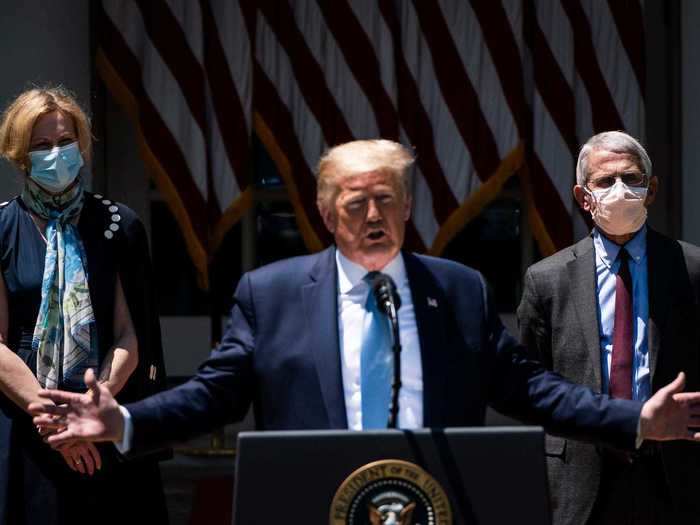
In the beginning of the pandemic, when scientists didn't know yet when this virus spreads best, it made sense to reserve personal protective equipment for the people caring for some of the very sickest patients.
The only big problem with that strategy is that it didn't factor in how this virus transmits: it often spreads best at the very beginning of an infection, before people realize they are sick. That makes fighting this pandemic look quite different from a SARS, Ebola, or a MERS outbreak.
Now, knowing what we do about airborne spread and pre-symptomatic and asymptomatic cases, it makes sense that everyone should wear masks when they're around others, especially indoors, in close quarters, and where ventilation isn't great.
In fact, researchers at the University of Washington Institute for Health Metrics (a leading source for the federal government's COVID-19 projections) have estimated that more than 55,330 lives could be saved nationwide this winter (from now until April 1, 2021), if everyone just put on a mask.
The coronavirus wasn't the only health issue driving scientific innovations this year. A powder made from peanuts was approved to help allergic kids better tolerate accidental exposures.

Most kids with peanut allergies do not outgrow them. But, with a little help, some might be able to better tolerate accidental exposures.
In January, the Food and Drug Administration approved Palforzia, a new drug designed to help kids who are allergic to peanuts react better, if they are accidentally exposed.
"Because there is no cure, allergic individuals must strictly avoid exposure to prevent severe and potentially life-threatening reactions," Dr. Peter Marks, director of the FDA's Center for Biologics Evaluation and Research said at the time in a news release. "When used in conjunction with peanut avoidance, Palforzia provides an FDA-approved treatment option to help reduce the risk of these allergic reactions."
Palforzia is not designed to be administered during an allergic reaction, instead it works as an allergy exposure therapy: children ages 4 through 17 receive daily doses of peanut powder under clinical supervision, and slowly up-dose it over time.
In clinical trials, the strategy worked well, but not perfectly. When peanut-allergic kids were fed 600 milligrams of peanut protein, 67.2% of Palforzia recipients who'd been using the medication for six months tolerated it, while only 4% of the control group did.
New gene therapies are being tried out for sickle cell disease, and they look promising.

Normally, red blood cells in our body are tiny circles flowing freely through veins. But, in patients with sickle cell disease, a gene mutation distorts their red blood cells into misshapen"sickle"-like crescent shapes. Such misshapen cells perturb blood flow, so the body's organs and tissues are not being delivered the fresh, oxygenated, blood they need to work well. This can result in severe pain, hypertension, and organ damage.
(The disease is more common among people with darker complexions, who have ancestry in sub-Saharan Africa, the Caribbean, South and Central America, India and the Mediterranean.)
The only cure for sickle cell disease is a bone marrow or stem cell transplant, which can be a life-risking gamble.
But recently, researchers have started trying out new ways to cure sickle cell, using and modifying patients' own blood stem cells (with techniques like CRISPR) to treat them through gene therapy. Early results are being published, and they look good.
New drugs were also approved for high cholesterol.
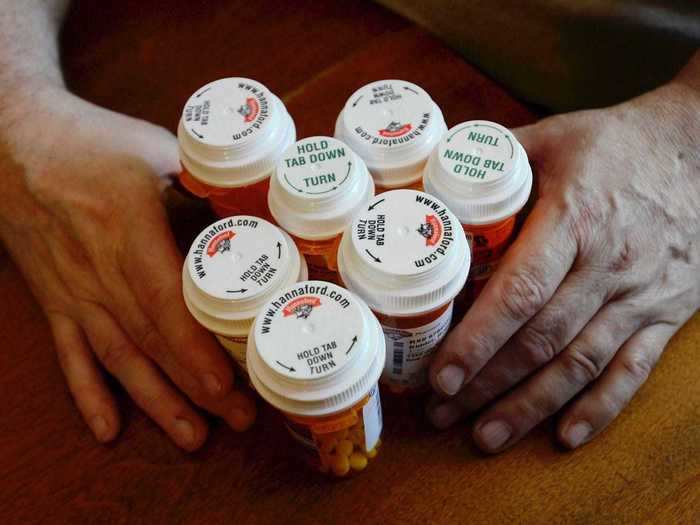
Bempedoic acid (Nexletol) was approved by the FDA in February. It's a non-statin cholesterol-lowering drug, widening the field of available treatment for patients who don't tolerate statins very well.
Regulators also approved a new kind of disposable scope, which could help curb dangerous and deadly hospital infections.
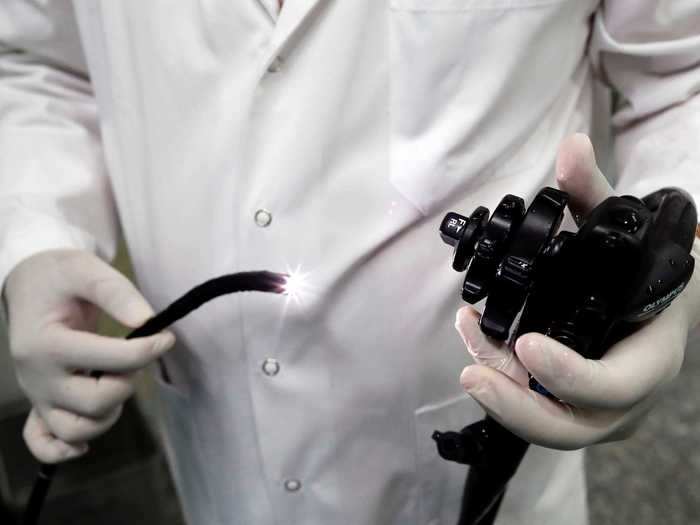
Duodenoscopes are tubes that let doctors peer into people's intestines. So it's understandable that when they're not properly cleaned in between uses, they pose a dangerous infection risk, potentially passing along gunk from one person's gut to the next.
It's not all that uncommon for people going in for a duodenoscope procedure to get a dirty scope. The CDC has cautioned that "more healthcare-associated outbreaks have been linked to contaminated endoscopes than to any other medical device," and the FDA estimates nearly 1 in 10 scopes may be contaminated.
A dirty scope can even be deadly. But until now, the FDA has struggled to find a good solution for this rare, but dangerous contamination issue, because the tiny cameras are such invaluable diagnostic tools.
In 2020, Boston Scientific's EXALT Model D Single-Use Duodenoscope entered the market, providing one $3,000 solution to the problem. It's disposable, so people don't have to share their intestinal tubes with anyone else's bile. How fresh.
Finally, a new birth control gel was approved for use by the FDA. It's not quite as effective as the pill, but it is hormone-free.

Phexxi is a hormone-free birth control gel approved by the FDA in May. Women insert it into their vagina up to one hour before having sex. It keeps the vaginal pH level low, reducing the odds that swimming sperm can make it up the birth canal to inseminate eggs.
But, it's not perfect.
The new gel is 93% effective at preventing pregnancies when used absolutely flawlessly, and about 86% effective in real-world conditions.
That's pretty on par with condoms, which are 98% effective at preventing pregnancy when used perfectly, and about 85% effective in the real world. But Phexxi does not provide any protection against sexually transmitted infections and diseases in the way that condoms do.
Phexxi is also not nearly as effective as a daily birth control pill, which, when taken at the same time every day, is roughly 99% effective at preventing pregnancies.
READ MORE ARTICLES ON
Popular Right Now
Popular Keywords
Advertisement